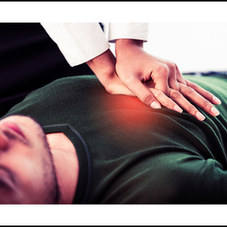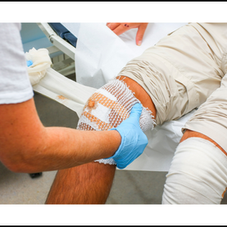7 early signs of impending stroke!
The Warning Signs of Stroke
Imperative to know to save your loved ones or even you! Stroke is an emergency. It can happen to anyone, at any age and any time.When stroke strikes , you should act fast!
When you have a stroke, your brain isn't getting the blood it needs. The sooner you get help, the less likely you'll have serious, lasting problems. And the better your chance of recovery.

Symptoms
Sometimes a stroke develops gradually. But you're more likely to have one or more sudden warning signs like these:
-Numbness or weakness in your face, arm, or leg, especially on one side
-Confusion or trouble understanding other people
-Trouble speaking
-Trouble seeing with one or both eyes
-Trouble walking or staying balanced or coordinated
-Dizziness
-Severe headache that comes on for no reason
The BEFAST test is a quick way to check someone for symptoms.
Balance: Does the person have a sudden loss of balance?
Eyes: Has the person lost vision in one or both eye?
Face: Smile! (Does one side of their face droop?)
Arms: Raise both arms. (Is one higher than the other? Do they have a hard time holding one up?)
Speech: Repeat a short, simple sentence, like "Mary had a little lamb." (Do they slur their words? Is it hard to understand them?)
Time: If any of these are "yes," call 911 immediately!

What causes stroke?
The different forms of stroke have different specific causes.
1. Ischemic strokes
Ischemic strokes are the most common form of stroke, with around 85% of strokes being of this type. They are caused by the arteries that connect to the brain becoming blocked or narrowed, resulting in ischemia - severely reduced blood flow.
These blockages are often caused by blood clots, which can form either in the arteries connecting to the brain, or further away before being swept through the bloodstream and into narrower arteries within the brain. Clots can be caused by fatty deposits within the arteries called plaque.
2. Hemorrhagic strokes
Hemorrhagic strokes are caused by arteries in the brain either leaking blood or bursting open. The hemorrhaged blood puts pressure on brain cells and damages them. Blood vessels can burst or spill blood in the middle of the brain or near the surface of the brain, sending blood into the space between the brain and the skull.
The ruptures can be caused by conditions such as hypertension, trauma, blood-thinning medications and aneurysms (weaknesses in blood vessel walls).
3. Transient ischemic attack (TIA)
TIAs are different from the aforementioned kinds of stroke because the flow of blood to the brain is only disrupted temporarily for a short time. They are similar to ischemic strokes in that they are often caused by blood clots or other debris.
TIAs should be regarded as medical emergencies just like the other kinds of stroke, even if the blockage of the artery is temporary. They serve as warning signs for future strokes and indicate that there is a partially blocked artery or clot source in the heart.
According to the Centers for Disease Control and Prevention (CDC), over a third of people who experience a TIA go on to have a major stroke within a year if they have not received any treatment. Between 10-15% will have a major stroke within 3 months.
What to Do:
A stroke is a medical emergency.
Don't wait! Every minute counts. If you have even one symptom for more than a few minutes:
Call 911, An ambulance can get you to a hospital without delay. Don't drive yourself.
Note the time when symptoms started. (The hospital staff needs to know.)
What if you're with someone who's having symptoms, but you're not sure if it's a stroke? Some people may deny there's a problem. They don't want others to make a fuss. Or they might say, "What's the big rush?"
Consider this: What's the worst thing that can happen if this isn't a stroke? An unnecessary trip to the hospital. What's the worst thing that can happen if it is a stroke and you ignore it?
Don't take chances. Call 911.
Be Prepared:
Few people think a stroke will happen to them. But given how fast damage can happen, it's something you should think about -- especially if you have a medical condition that raises your risk for having one. Advance planning may end up making a big difference.
Ask your doctor or nurse which hospitals in your area are primary stroke centers, with 24-hour emergency care. You may be able to find stroke care centers online, too.
Find out which hospital or medical facility is closest to your home or work. Check with your human resources department or your doctor.
Rehabilitation:
Strokes are life-changing events that can affect a person both physically and emotionally. As such, certain rehabilitating activities may need to be carried out in order for a person who has experienced a stroke to fully recover.
-Speech therapy can help with problems producing or understanding speech. Practice, relaxation and changing communication style, using gestures or different tones for example, all help.
-Physical therapy helps with relearning movement and co-ordination. It is important to get out and about, even if it is difficult at first.
-Occupational therapy helps to improve the carrying out of routine daily activities, such as bathing, cooking, dressing, eating, reading and writing.
-Joining a support group can help with common mental health problems such as depression that can occur after a stroke. Many find it useful to share common experiences and exchange information.
-Support from friends and family is also useful and can provide comfort. Letting friends and family know what can be done to help is very important.
Preventing a stroke
The best way to prevent a stroke is to address the underlying causes. This is best done by living healthily. Here is a list of simple measures that can be followed:
-Avoid illicit drugs
-Eat a diet rich in fruit and vegetables and low in cholesterol and saturated fat
-Exercise regularly
-Keep blood pressure under control
-Keep diabetes under control
-Maintain a healthy weight
-Moderate alcohol consumption (or quit drinking)
-Quit smoking
-Treat obstructive sleep apnea (if present)




















